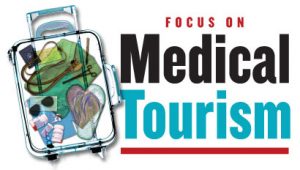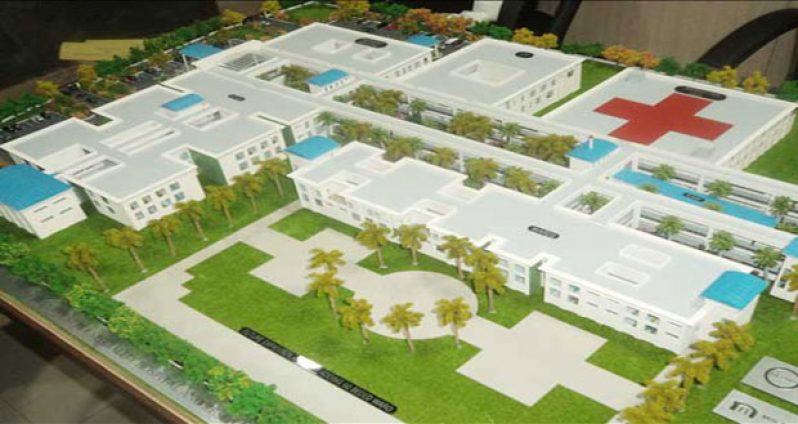BECAUSE Caribbean countries are racing each other to control shares in the medical tourism market, a competition has been created which can be a setback for them realising their expectations in the emerging sector.In a recent paper, ‘Medical Tourism in the Caribbean: A call for cooperation’ — experts K. Adams, J. Snyder, V. Crooks and L. Hoffmans noted that the competition should be a matter of concern, as it may impact the ability of countries to ensure their hopes for medical tourism are realised.
They pointed out that if multiple countries vying for foreign investment create a race-to-the-bottom environment that tips the balance of power towards outside agencies and interrupts efforts for enhanced economic integration in the region, many Caribbean countries could see a negative impact from their entry into the medical tourism market.
“We believe that, without cooperation between countries, foreign investment in the healthcare sector due to medical tourism may not be invested in such a way that optimally enhances patient access to healthcare throughout the Caribbean region.
“Our discussions with individuals in health-related fields in St Lucia, Barbados, and Jamaica highlight two possible modes of regional cooperation that could enhance equitable access to healthcare regionally. The first mode of development is through the establishment of niche medical tourism services in different countries in the region,” the authors said.
BACK BURNER
Here in Guyana, the establishment of a specialty hospital has been placed on the back burner as the Government pays keener attention to improving primary healthcare services. Locally, there are health centres in need of repair, while the services offered by many are poor.
The former administration is of the view that the Specialty Hospital would upgrade healthcare in the country, but the new Government believes that any upgrading would have to be introduced from bottom up.
The intention behind building the Specialty Hospital was to capitalise on the medical tourism market in the Caribbean by offering services in heart and cosmetic surgeries, and performing transplant procedures and other advanced specialty services.
The aim was to attract persons, especially from the United States, where the costs for these services are high.
But there is a strong likelihood that the services the Specialty Hospital was intended to provide are already being provided by CARICOM countries which have entered the medical tourism market.
The authors of Medical Tourism in the Caribbean noted that, by developing niche services that are not replicated within the region, islands will not be competing for the same pool of medical tourists, and greater access to specialised services could be provided within the region without wasteful duplication, further enhancing regional patient flows and access to care throughout the Caribbean.
COOPERATION
According to the experts, the development of niche services would require cooperation between countries to ensure oversaturation of duplicate forms of medical tourism does not occur, thus enhancing sustainability of the medical tourism activities.
“Regional planning and information sharing about development plans could enable the creation of niche specialisations in different countries, to provide desired specialised medical services that are currently limited in the Caribbean.
“Sustainable financing for these projects could be supported through international patient visits, as long as this foreign exchange was not diluted among various islands offering the same services,” the experts caution.
The second mode of regional cooperation, the authors noted, is the optimisation of benefits of the medical tourism industry by fully regionalising the industry.
The Specialty Hospital, which would have been manned by specialists from India, was to be built with a strong focus on Guyana, and it appears that not much has been paid to the developments in the emerging sector in the Caribbean.
“Beyond developing niche medical tourism operations, Caribbean countries could coordinate to share training and employment opportunities for health human resources required to staff medical tourism facilities, to minimise the brain drain of resources to outside the region, as well as between countries,” experts have said.
UNIQUENESS
The experts have noted that the tourism market in the Caribbean has dictated the need for islands to promote their uniqueness, while also appealing to the desires of the masses.
Medical tourism is one form of diversification being sought. Well-established medical tourism destinations in Southeast Asia (e.g., India and Malaysia) and in Central America and the Caribbean (e.g., Costa Rica and Cuba) enhance the global visibility of the industry as a means of potential economic development.
Tourism-dependent countries in the Caribbean have taken particular notice, and many have expressed interest in developing a medical tourism sector. As a result, the past few years have seen increasing interest from groups positioned to profit in the creation of the industry in the Caribbean by providing development strategies, assistance with accreditation, and capital in exchange for financial resources and/or regulatory changes. But while India, the Philippines and Costa Rica have enjoyed success in this field, the Caribbean has lagged.
At the recently concluded Caribbean Public Health Agency’s (CARPHA) 60th Health Research Conference in Grenada, it was pointed out that Caribbean nations, in a bid to get a slice of the medical tourism market, have not taken into account the peculiarities of those countries which have successful medical tourism sectors.
Those peculiarities, it was noted, would have to be taken into account; and, where possible, should be replicated in the Caribbean to ensure a similar level of success.
The region was also cautioned to ensure a proper regulatory framework is in place to protect the regional health system.
Medical tourism is the movement of individuals across national borders with the intention of privately purchasing medical procedures. It has become a topic of increasing discussion among policy-makers in the Caribbean.




.png)









